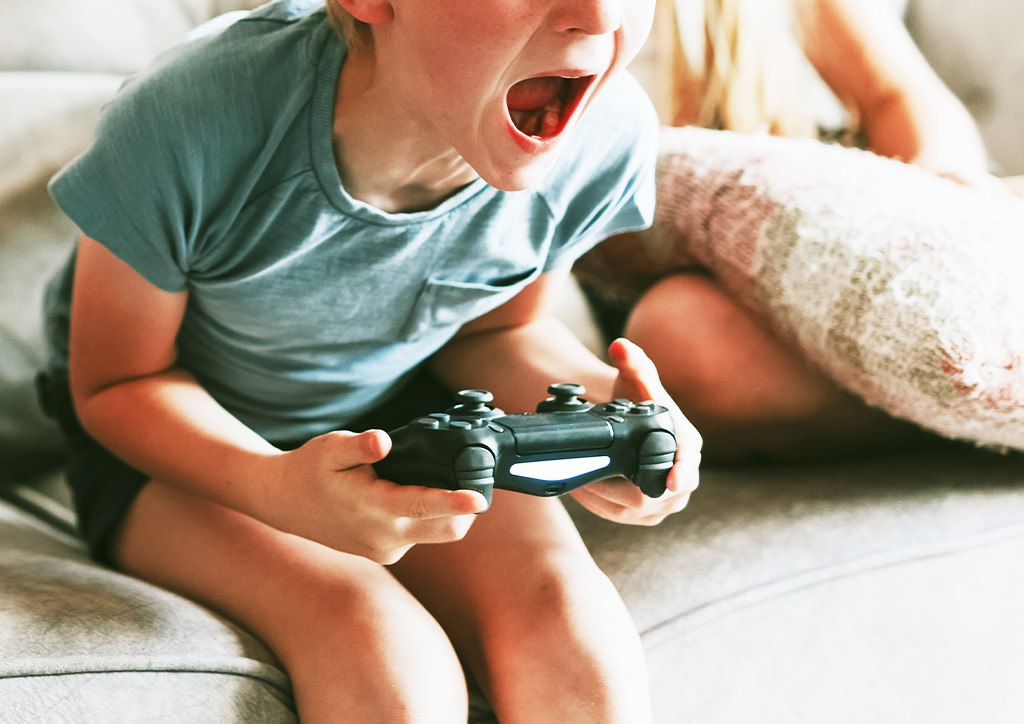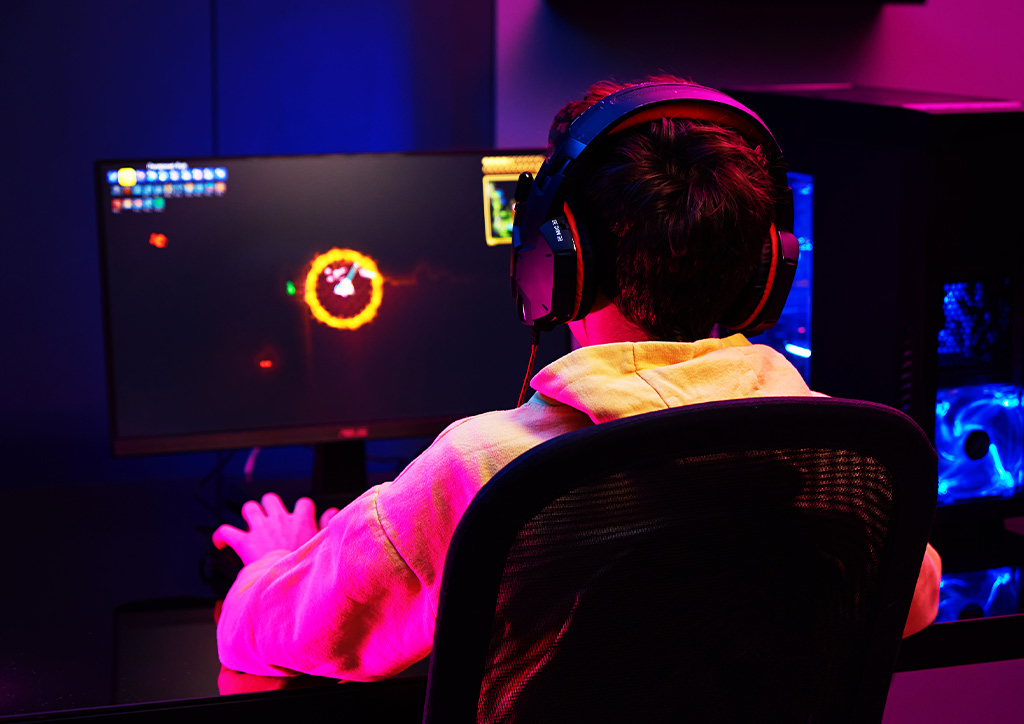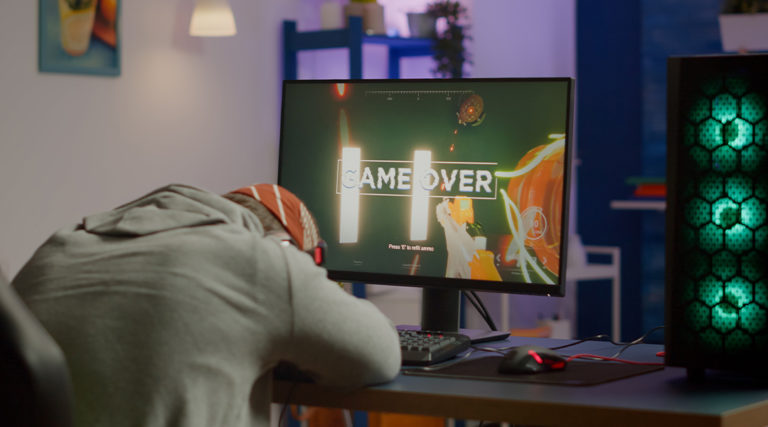Kids
A Gamer’s Guide On How Teens and Kids Can Cope With Gamer Rage
Here’s how teens, kids, and young adult gamers can cope with their gamer rage in a healthy manner.
Many of us are not too keen on video games because we have seen our kids, teens, and young adults become more “short-tempered” and more “irritable” as gamers. Sometimes, their gamer rage gets out of hand when they start throwing things, punching the wall, yelling, and screaming at people. But there is a way to cope with gamer rage in a healthy way. However, let’s debunk a few myths before we begin.

It’s easy for us to blame video games.
As parents, it’s easier for us to blame video games for making our kids frustrated and irritable. But it doesn’t solve the problem because video games are just offering tasks that players can do. For many gamers, video games offer a variety of tasks similar to a person’s schoolwork. But for games that have other players with them, there’s a community that will judge them. And if they identify as a gamer, they would want to do everything to stay in that community. Even if they don’t have a genuine real-life relationship, gamers respect each others’ time spent in-game.
We think that because there’s a screen, the relationship doesn’t matter. On the contrary, they are almost similar in weight because games that involve other gamers require communication and cooperation with one another.
Why do kid and teen gamers rage?
When we don’t complete a task or we fail at it, we also feel frustrated. The same thing goes for games. It’s easy to say, “It’s just a video game!” but for them, there’s still time invested. Sometimes, it’s not about whether the rage is deserved or not. They just want to be mad—which video games allow and consider normal. It validates their frustration and rage in a world and society that is quick to judge a person for getting angry.
“I should just take away their games and ground them!”
Unfortunately, it’s not that simple. Grounding them and taking away their games because they’re angry sends the message that “they have no right to feel frustrated and angry”. Because video games serve as a socially acceptable outlet for frustration and rage, taking that away from our gamer kids and teens may lead them to find more harmful ways of handling their rage when they game.
It’s also because of this premise that people think video games make their kids “neurotic” or “irritable”.

What can we do then to help teens and kids cope with gamer rage?
In the spirit of Gentle Parenting and Conscious Parenting, there are ways to do it. However, this doesn’t mean just letting them fly off the handle. It also means letting them know that their gamer rage may make them do things that have consequences. Here are some tips and ways from fellow gamers to help teens and kids cope with gamer rage.
1. Implement the “three-loss” rule.
If your gamer kids and teens are into competitive games then, implement what gamers call the “three-loss” rule. The three-loss rule is that if a gamer loses “three consecutive matches” then, it’s time to take a break. Spite may sometimes fuel our kids into playing harder because they fall into what Psychology calls the gambler’s fallacy. By continuously queueing up for matches, they think they’ll get a better match-up because their previous one was bad.
Unfortunately, it’s not the case because when games match up gamers, it’s based on who’s online and available at that certain time. Moreover, taking a break allows them to find a time when the video game is supposed to be the most relaxing. A 1-hour break can make a lot of difference.
2. Code word: Touch Grass
“Time to touch grass” is modern slang for “go out and take a break” when gamer rage gets the best of a player. It’ll definitely shock your gamer kids and teens out of their rage because they’ll wonder, “When did my mom or dad speak gamer lingo?” It’ll give them time to calm down, too.
Additionally, encouraging them to go “touch grass” tells them that they don’t have to “quit the game” entirely. They just need to take a short break and give themselves space for a while.
3. If they break something, they pay for it.
Some kids and teens may express their gamer rage via displacement or taking out their anger on objects. Gentle parenting doesn’t mean letting them get away with breaking things. It means giving the appropriate discipline to understand why they handled their gamer rage badly. That means, if they put a hole in the door because they kicked it out of gamer rage, they pay for the repairs.
4. Make them pay for their gaming equipment.
Gamers are less prone to breaking their equipment out of rage because they want to make the most out of their money. Gaming keyboards can cost around P500 while gaming mice can cost up to P4,000 especially if they want glowing lights and adjustable sensitivity. This teaches them to play video games responsibly instead of just getting absorbed into the game.
5. Let them have a toy or something they can fidget with.
Frustration is a form of the mind being overloaded with adrenaline. Giving your kid and teen gamers a stress ball or a pen to fidget with helps them unleash their energy. It also prevents any damage done to the furniture.

Gamer rage can be dealt with in a healthy way!
It’s unknown territory for many parents how video games work because back then, video games didn’t have the multi-player function that allowed kids and teens to communicate with other players across the globe. But like we said, just because there’s a screen, doesn’t mean there’s no connection. Gamers have an unspoken rule in their culture and that’s to give their best out of respect for other people’s time. Coming up with these creative ways to cope with gamer rage doesn’t mean invalidating their frustration. It means giving them a better way to deal with it instead of smashing things.
More about video games and gamers:
How To Deal With Our Gamer Kids’ and Teens’ Rage
This Gamer and First-Time Dad Shares The Importance of Self-Awareness
UPDATED: Parents’ Ultimate Guide to Kids’ Modern Slang





